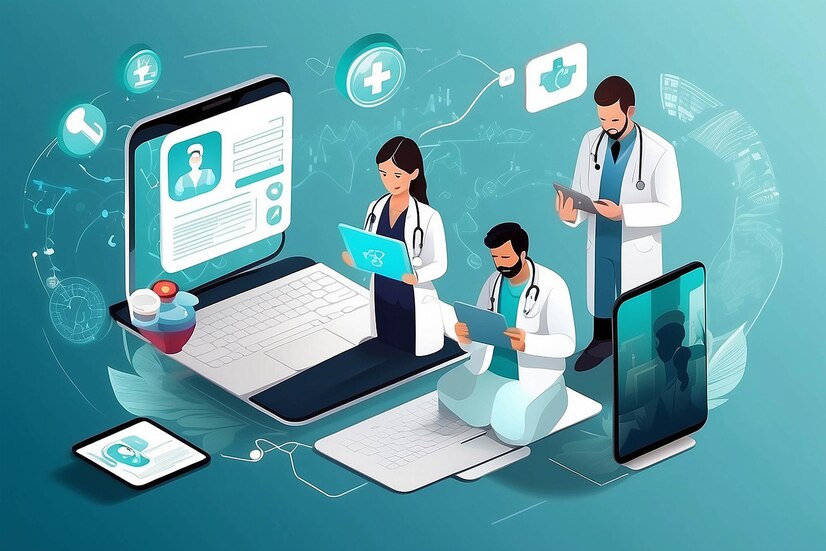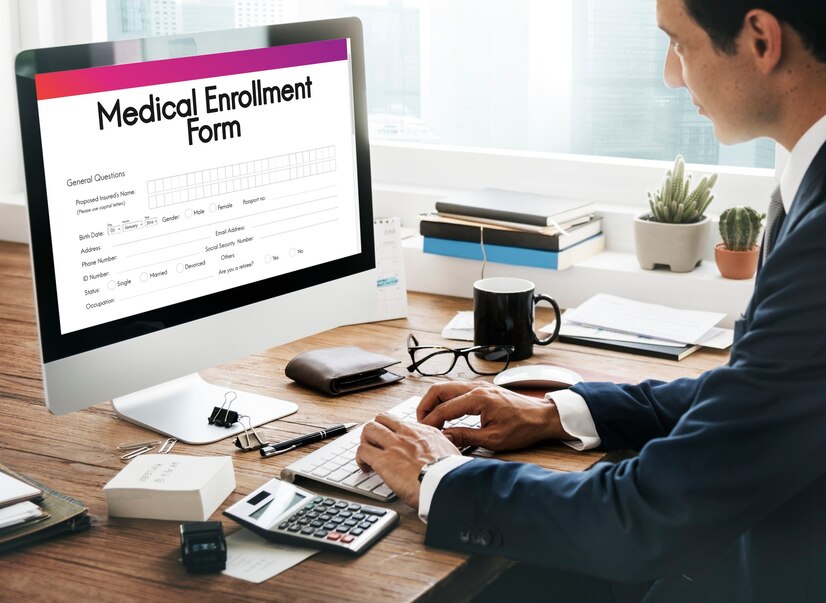What Is an Audit Trail? A Simple Guide
Introduction
Accuracy and transparency are critical in medical billing. The audit trail is an essential tool that helps meet these standards. What is an audit trail, and how does it affect medical billing? Med Revolve Billing has a comprehensive guide regarding an audit trail and understands its significance in the healthcare industry.
What Is an Audit Trail?
An audit trail is a sequential record that provides a documented history of actions taken on a particular transaction or record. An audit trail tracks every interaction, modification, or access of electronic health records (EHRs) and billing data in medical billing. This detailed log helps maintain accountability, transparency, and integrity in medical billing processes.
Why Is an Audit Trail Important in Medical Billing?
Ensuring Accuracy:
Audit trails are essential in ensuring the accuracy of patient records and billing data. By tracking every change made to a record, audit trails help identify and correct errors before they lead to billing mistakes. This helps healthcare providers maintain accurate records and ensures patients are billed correctly for their services.
Sustaining Compliance:
Healthcare providers must comply with many laws and standards. They aim to protect patient privacy and ensure the security of healthcare information. HIPAA sets strict rules for handling patient information. Audit trails help highlight compliance with HIPAA and other regulations by providing a clear record of who accessed patient information and when. This helps healthcare providers avoid costly fines and penalties for non-compliance.
Detecting Fraud:
Illegal activities in medical billing can result in significant financial losses for healthcare providers. It can also harm patients, leading to incorrect treatment plans or unnecessary procedures. Audit trails help detect and prevent fraud by tracking every action taken on a record. This makes it easier to identify errors or unauthorized access.
Facilitating Accountability:
Accountability is essential for maintaining trust between patients, healthcare providers, and billing professionals in the healthcare industry. Audit trails create a sense of responsibility by recording every action taken on a record and giving it to a specific user. This encourages healthcare providers and billing professionals to follow the rules and best practices and monitor and record their actions.
Supporting Legal Actions:
Audit trails can be crucial evidence in issues or legal cases. They can help resolve errors or defend against claims of improper billing practices. They provide a detailed account of actions taken on record. This can be especially important in cases where patient care or billing practices are questioned. A comprehensive record of the actions leading up to the disagreement may be found in audit trails.

Med Revolve Billing Helps You Understand How an Audit Trail Works in Medical Billing
Recording Transactions:
In medical billing, every transaction related to patient visits, treatments, and charges is recorded in the billing system. This includes details such as the type of service provided, the date and time of the service, and any associated costs.
Time Stamping:
Each transaction is time-stamped with the exact date and time of the event to ensure accuracy and sequential order. This timestamp is an essential reference point for tracking the sequence of events in the billing process.
User Identification:
An audit trail in medical billing also includes identifying the specific user who performed a transaction. This identification helps assure accountability, allowing healthcare organizations to trace actions back to individual users.
Change Tracking:
Any changes or updates made to billing records are tracked within the audit trail. This includes modifications to patient information, billing codes, or payment details. By documenting the original and modified information, change tracking helps maintain a clear record of all billing activities.
Access Control:
Only authorized staff have strict control over access to the audit trail. This access control ensures that only individuals with the necessary permissions can view or modify the audit trail, enhancing data security and integrity.
Benefits of Audit Trails for Patient Privacy
Enhanced Security:
Audit trails increase the security of patient information by providing a detailed record of access and changes. This helps avoid unauthorized access and provides accountability for those with access to patient information. Healthcare organizations can reduce patient risk by quickly identifying and responding to hacking attempts by keeping an audit trail.
Compliance with Regulations:
Audit trails are required to follow medical laws such as the Health Insurance Portability and Accountability Act (HIPAA). HIPAA requires healthcare organizations to maintain an audit trail of electronic health information access. By implementing audit trails, organizations can highlight compliance with these laws and avoid potential fines and penalties.
Detection of Unauthorized Access:
Audit trails can help detect unauthorized access to patient information. Healthcare organizations can review audit logs to identify patterns of unauthorized access and take corrective action. This can help avoid data hacking and protect patient privacy.
Improved Accountability:
Audit trails promote accountability among healthcare professionals by recording their actions. This can help avoid misusing patient information and ensure healthcare professionals adhere to ethical standards and organizational policies.
Increased Patient Trust:
Healthcare organizations highlight their commitment to protecting patient privacy by implementing audit trails. This can increase patient trust and confidence in the healthcare system, leading to better patient-provider relationships and improved health outcomes.
Conclusion
Audit trails are essential to maintaining accuracy, compliance, and security in medical billing processes. They ensure accountability and transparency and benefit healthcare providers, billing professionals, and patients. Med Revolve Billing encourages audit trails to improve the quality and integrity of medical billing practices.
Frequently Asked Questions
A medical audit trail is a chronological record of all actions and changes made in patient medical records, tracking who accessed or modified information and when.
The purpose of an audit trail is to ensure accountability, detect unauthorized access, support regulatory compliance, and assist in error tracking and correction.
An audit trail in clinical trials logs all data-related activities to ensure integrity, accuracy, and compliance with Good Clinical Practice (GCP) guidelines.
The audit process in medical billing involves reviewing billing records for accuracy and compliance, identifying discrepancies, and providing recommendations for improvement.
Inspection: Examining records and physical assets for accuracy.
Observation: Watching processes to ensure compliance.
Confirmation: Verifying account balances with external parties.
Recalculation: Checking the mathematical accuracy of documents.
Analytical Procedures: Comparing financial information with expected results.
Engage and Explore
How Med Revolve Billing can increase your revenue and optimize your RCM













